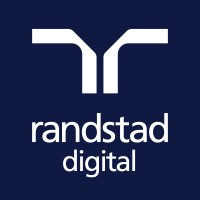Companies that use Citus
It's an extension to Postgres that distributes data and queries in a cluster of multiple machines. Its query engine parallelizes incoming SQL queries across these servers to enable human real-time (less than a second) responses on large datasets.
273
companies
List of companies using Citus
curl --request POST \
--url "https://api.theirstack.com/v1/companies/search" \
--header "Accept: application/json" \
--header "Content-Type: application/json" \
--header "Authorization: Bearer <api_key>" \
-d "{
\"company_technology_slug_or\": [
\"citus\"
]
}"Technology
is any of
Citus
| Company | Country | Industry | Employees | Revenue | Technologies |
|---|---|---|---|---|---|
 Italy | Machinery Manufacturing | 6.3k | $2.1B | Citus | |
 Latvia | Banking | 1.1k | Citus | ||
 Latvia | Retail | 1.3k | Citus | ||
 United States | Hospitals and Health Care | 201 | $44M | Citus | |
 Latvia | Personal Care Product Manufacturing | 147 | Citus | ||
 Latvia | Financial Services | 512 | Citus | ||
 Switzerland | IT Services and IT Consulting | 34 | Citus | ||
 United States | Software Development | 1.2k | $100M | Citus | |
 United States | Technology, Information and Internet | 81 | $5.3M | Citus | |
 India | Software Development | 18 | Citus |
We have data on 273 companies and users that use Citus. Our Citus users and customers list is available for download and comes enriched with vital company specifics, including industry classification, organizational size, geographical location, funding rounds, and revenue figures, among others.
Technology Usage Statistics and Market Share
How to target Citus users
- How to customize this list?
You can customize this data to your needs by filtering for geography, industry, company size, revenue, technology usage, job postions and more. You can download the data in Excel or CSV format.
- How to be alerted when companies adopt this technology?
You can get alerts for this data. You can get started by selecting the technology you are interested in and then you will receive alerts in your inbox when there are new companies using that technology.
- How to import this data to my CRM?
You can export his data to an Excel file, which can be imported into your CRM. You can also export the data to an API.
Frequently asked questions









